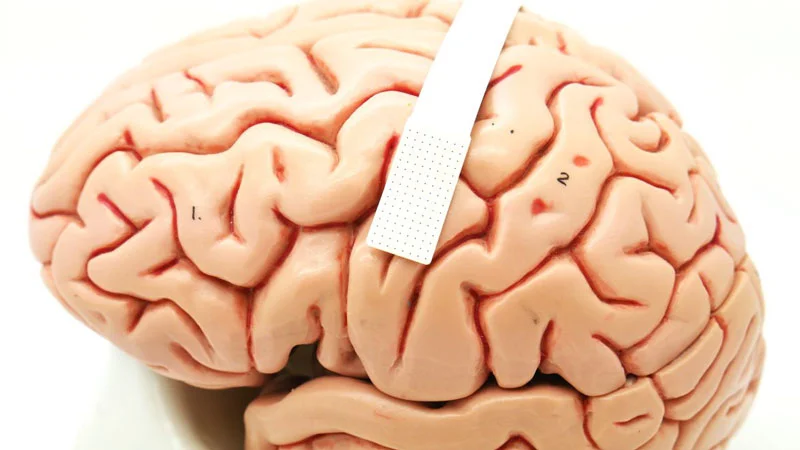Mayo Clinic researchers are using artificial intelligence to improve analysis of EEG tests and help detect dementia early.
By analyzing brain wave patterns more precisely, AI is detecting subtle signs of cognitive decline that experts may not notice. This development, based on data from more than 11,000 patients, demonstrates the potential of EEG to become a more accessible diagnostic tool for cognitive issues, especially in underserved areas.
Improving EEG analysis using AI and machine learning
Mayo Clinic scientists are using artificial intelligence (AI) and machine learning to analyze electroencephalogram (EEG) tests faster and more accurately, allowing neurologists to spot early signs of dementia among data that normally goes unanalyzed.
The centuries-old EEG, in which a dozen or more electrodes are taped to the scalp to monitor brain activity, is often used to detect epilepsy. The results are interpreted by neurologists and other experts trained to spot patterns among the test’s meandering waves.
Improving early detection of dementia with artificial intelligence
In a new study published today (July 31) in the journal Brain Communication Scientists from Mayo Clinic’s Neurological Artificial Intelligence Program (NAIP) are showing how AI can not only speed up analysis, but also alert examiners to abnormal patterns that are too subtle for humans to detect when examining test results. The technology has the potential to one day help doctors distinguish causes of cognitive problems such as Alzheimer’s disease and dementia with Lewy bodies. The study suggests that EEG, which is easier to obtain, less expensive and less invasive than other brain tests, could be a more accessible tool to help doctors detect cognitive problems in patients earlier.
“These brain waves contain a lot of medical information about brain health in the EEG,” says senior author David T. Jones, MD, a neurologist and director of NAIP. “It’s well known that in people with cognitive problems, you can see these waves slow down and look a little different. In our research, we wanted to know if we could accurately measure this type of slowing with AI.”
Development of an artificial intelligence tool with big data
To develop the tool, researchers collected data from more than 11,000 patients who received EEGs at the Mayo Clinic over a decade. They used machine learning and artificial intelligence to simplify complex brainwave patterns into six specific features, teaching the model to automatically discard certain elements, such as data that should be ignored, to focus on patterns characteristic of cognitive problems such as Alzheimer’s disease.
“It was surprising how quickly this technology helped pick out EEG patterns compared with traditional methods of measuring dementia, such as bedside cognitive testing, fluid biomarkers, and brain imaging,” says Dr. Wentao Li, one of the paper’s first authors, who conducted research with NAIP during his time at Mayo Clinic’s Clinical Behavioral Neurology Fellow.
“One of the common ways to measure patterns in medical data right now is through expert opinion. So how do we know that patterns are there? Because the expert is telling you they’re there,” Dr. Jones says. “But now, with AI and machine learning, we can not only see things that experts can’t see, but we can also quantify what they can see.”
EEG as an available early diagnosis tool
Using EEG to detect cognitive problems may not replace other types of exams, such as MRI or PET scans, but with the power of AI, EEG could one day provide healthcare providers with a more affordable and accessible tool for early diagnosis in communities that don’t have easy access to specialized clinics or specialized equipment, such as rural areas, Dr. Jones said.
“It’s very important to catch memory problems early, before they become obvious,” Dr. Jones says. “Early and accurate diagnosis helps us give patients the right prognosis and the best treatment. The methods we’re looking at may be a less expensive way to detect people with early memory loss or dementia compared to current tests such as cerebrospinal fluid tests, brain glucose scans, or memory tests.”
Future research and validation
Dr. Jones said it will take several years of additional research to continue testing and validating the tools. But he says the study shows that there are ways for researchers to use clinical data to incorporate new tools into the clinical workflow to achieve the goal of bringing new models and innovations to clinical practice, improving the capabilities of existing assessments, and scaling this information beyond the Mayo Clinic.
“This study exemplifies interdisciplinary teamwork to advance translational health research,” says Yoga Varatharajah, Ph.D., co-author of the paper and a NAIP investigator at the time the study was completed.













